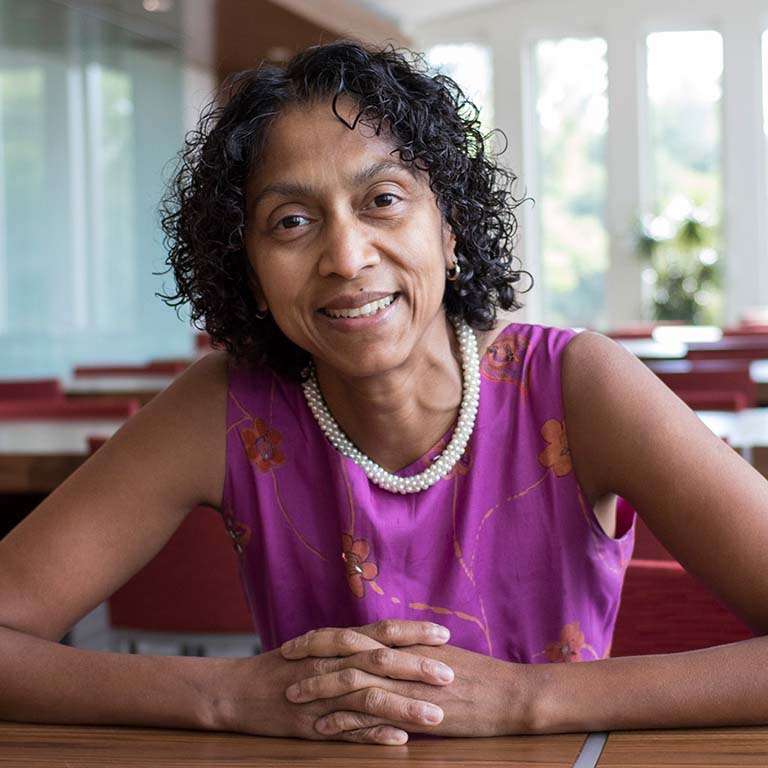The coronavirus continues devastating communities around the globe. Hundreds of thousands have lost their lives. Many more have lost their jobs and sources of income. And most everyone has lost the sense of normalcy we were all accustomed to just months ago. But the scope of COVID-19 extends beyond our hospitals and medical facilities. From its impact on vulnerable populations and the effectiveness of executive orders to the toll the virus is taking on those suffering from energy insecurity, the Indiana University O’Neill School of Public and Environmental Affairs is at the forefront of discovering the critical, yet often overlooked, effects of this global pandemic.
O’Neill School at the forefront of coronavirus research

When we think about vulnerable communities, there’s an overlap between who’s vulnerable in a healthcare or health sense as well as who’s vulnerable in an economic sense.
— Kosali Simon, Professor, O’Neill School of Public and Environmental Affairs; Herman B Wells Endowed Professor; and Associate Vice Provost for Health Sciences
22%of Americans at or below 200% of the federal poverty line had to reduce or forgo basic household needs to pay an energy bill in May 2020.
11.1%U.S. unemployment rate in June 2020. Data show certain populations are more vulnerable to job loss than others.
17%Jail population decrease among a sample of 557 jails across the country due to COVID.
Coronavirus research
COVID on campus
Colleges and universities weighed several opening options this fall. As students returned for face-to-face instruction at some, they brought COVID with them.
Wipe out
We’re cleaning and disinfecting now more than ever with common household chemicals to stop the spread of COVID-19. A new study shows that might be a problem.
Seeking care during COVID
As COVID-19 spiked across the country, visits to health care providers for non-Coronavirus issues declined. The long-term effects could be problematic.
COVID, unplugged
Energy insecurity, the inability to pay an energy bill, has long been a problem among low-income households in the United States. But a first-of-its-kind survey from Professor David Konisky and colleagues has found that COVID-19 is having a significant impact on an already vulnerable population, and is likely to send new households into it.
Discovering demographic disparities
As U.S. unemployment soars due to the pandemic, Professors Felipe Lozano-Rojas, Kosali Simon, Coady Wing, and colleagues are working to understand exactly who is losing jobs in what occupational areas and why. The initial results? Job losses have been greater for Hispanics; younger workers, ages 20-24; women; workers with families of four or more children; and less-educated workers.
Rule(s) of order
After tracing more than 1,000 executive orders issued in the wake of the pandemic, Professor Peter Federman and former O’Neill School Professor Cali Curley and have found that state governments have more policymaking tools at their disposal than previously thought.
COVID behind bars
As the virus spread across the country, jail officials worked to mitigate the impact to the incarcerated. But social distancing could only do so much. The Public Policy Institute has examined national data to find where jail populations are declining.
Is the cure worse than the problem?
The public health shock of the epidemic has direct economic impacts, but the mitigation policies governments are using to control the spread of the virus may also damage economic activity. Professors Felipe Lozano-Rojas, Kosali Simon, Coady Wing, and colleagues are working to discover if there’s a balance to be found.
Homebound
A temporary national paid sick leave policy provided many employees with up to two weeks of paid leave. Using cell phone location data, Professor Kosali Simon and others determined that the policy enabled more people to stay home.
Learn about the impact of the Families First Coronavirus Response Act
Uplifting Black communities
Data suggest COVID-19 affects the Black community at a disproportionate rate. The effects are inextricably linked to areas of systemic oppression and disenfranchisement. Professor Cullen Merritt and a Florida State University colleague share early lessons in crafting equitable responses to help.
Nonprofits are suffering
In Indiana, more than half of the state’s nonprofit organizations have curtailed or suspended programs and 70 percent operate other ongoing programs with limited or reduced capacity. Nearly three-quarters are down in revenue. Professor Kirsten Grønbjerg and the Indiana Nonprofit Survey have published their findings.

